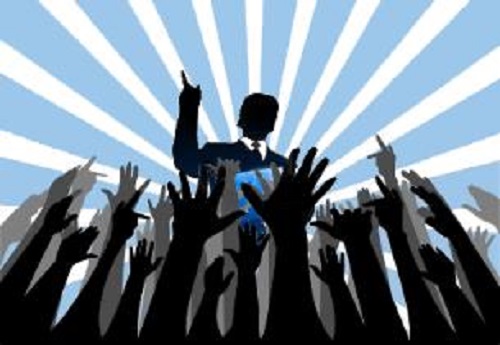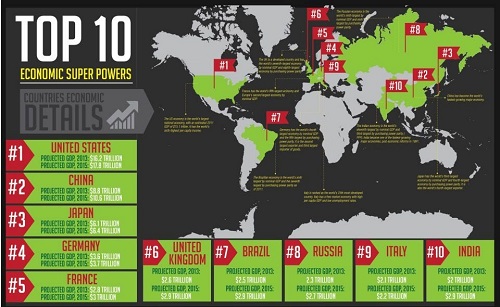Difference between Economical Power and Political Power
Power is a very strong word, with loads of different meanings and uses. Powerful refers to someone that has lots of influence on people or an industry. There is political power, market power, economic power, bargaining power and even purchasing power. It is important to understand the difference between political power and economic power.
What is political power?
Political power is a lot more complex than just the definition of the concept. The concept of political power must first be divided between power and political. If the concept is seen as one the whole meaning might not be as strong as it is supposed to be.
Power is the ability to produce or to act an effect, and influence the outcome. Political or politics is basically the name for a movement which has certain influence on people. This is not just in government, but there can be politics in school or a workplace.
Political power can then be seen as the “The power/ authority held by any group or party, allowing them to make use of public resources as they see fit.”. There are different types of political power, which will enable you to understand the concept better.
Types of political power
There are three main types of political power. However, it must be noted that political power can be different from country to country. It is important to see that political power is limited to the influence that the person in power, has over the citizens as well as other politicians.
However, to understand political power easier, we will focus on the three types.
Mineral power – Mineral power here refers to human behaviour. Mineral power is the power that one has over humans. For example, if the police catch a criminal, then they put handcuffs on his wrists. You can ask someone not to run away, if you have enough power over him then he will not run away. The same goes to political leaders. If they have enough power or influence on the ordinary citizens that vote for them, they are able to stay in certain positions of power for a very long time.
Animal Power – humans are not just physical creatures, they are mostly guided by their senses as well as their wants and needs. This is typical animal behaviour. Think about your pet that you are training to sit. If the dog sits, then you give them a treat. The same goes with humans; human behaviour can be conditioned with a stick and carrot approach. If you are speeding in your car, you get a speeding ticket (stick), but if you pay your taxes, there are certain rebates you can get (carrot). Politicians love to use this kind of power. They will tell voters that certain things will happen when you come into power (carrot), as long as the voters vote for them. Then they make up the scenarios of what will happen when they are not in power, these are usually dark and negative pictures (stick). This type of power is most often seen in countries were the literate rate is not very high and where the politicians can tell voters what to believe.
Rational power – think back to your dog that you are training, you can teach him to do something and reward him for it; but you will never be able to argue with your dog into doing it. Humans have the ability to argue about certain issues. If you think about the different people that is in society, let’s take excessive drinking for instance. The government will try to curb this by introducing new laws, for instance that the companies that make alcohol are not allowed to advertise their products. However, humans are still able to decide for themselves whether they want to drink or not. This is after all people with free will.
Politicians try to manipulate the voters, especially if they know that the voting pool has strong rational thinking. In societies where the biggest part of the voters is educated, politicians tend to use this kind of power to convince voters to vote for them[i].
Examples of the use of political power
Before Donald Trump became president of the USA, he used certain tactics to convince voters that he is the better candidate. One of these was that he promised to build a wall between the USA and Mexico. This is a classic example of animal power that he used. He knew that certain Americans were unhappy with the Mexicans coming into their country, he thus gave them the “carrot” (wall) to vote for him.
In underdeveloped countries, such as most countries in Africa, politicians will use every day needs such as running, clean drinking water to get voters to vote for them. In some African countries, they even tell the voters that there is a little light in the voting box, and if they do not vote for the certain politician or political party, then the police will know and arrest them.
Political power is seen in daily life as well. At school, the principal will punish the pupils that do not follow the school rules. Or the boss at work will deduct money from the staff if they break to many items. These people hold certain positions of political power; thus, enabling them to take these actions!
Economic power
Strong economical countries are often referred to economic power houses. When you listen to the news on the radio, they will say that one strong country has insisted on certain conditions in a treaty and that the other countries has agreed because that country is an economic power house. Economic power is probably the most important power to have if you want to make certain changes or if you want something.
What is economic power?
Economic power is being in a state where there is sufficient productive resources at grasp, that will enable the person/s in charge to enforce economic decisions such as the allocation of resources, goods and services.
Types of economic power
It is important to note, that politicians or people in charge are not necessarily the ones who have the economic power. In some cases, the people with the economic power, has a bigger influence than the people with the political power.
Market power – this is where a firm or business has the ability to offer a service or product above the marginal cost price. In other words, it is a company that can set the price for a product or service and still make a good profit.
Purchasing power – usually refer to the ability of consumers to buy certain services or products. For instance, when a consumer earns a salary, they have certain purchasing power that goes with the salary. They can buy food and pay for internet services.
Bargaining power – refers to the ability of certain roll players in a certain industry to influence the outcome of a decision. If an inventor invents a new product and register a patent over the new design, then the inventor has the bargaining power when a company wants to use the new product’s design. The inventor can basically say which price he want for the patent, especially if the company really wants to use it.
Worker power – is also a form of economic power. Think of workers that do physical labour, such as miners. If they go on strike and refuse to work, then there is not output at the mine. This will have a profound impact on the revenue of the mine. Which might even have a profound influence on a country’s economic resources.
Examples of the use of economic power
There are many examples of economic power in daily life. When you go to the shop to buy food, your choices are a very simple example of economic power. Not just which products you buy but also to which shops you go. Your economic power will determine which type of products or services companies offer.
It happens that a big company can use their economic power to influence certain decisions that is made by government. Especially when the government wants to change laws, company can use their economic power to influence this. If a company is a big contributor to the country’s gross domestic product(GDP), the lawmakers will take the company’s concerns into consideration.
Political power vs economic power
- These types of power can work in cohesion with each other or be at the opposite ends of the argument. The outcome that the role players want will play a big role in which type of power the role players utilize.
- The most important element is to identify the type of power that is being used, this will enable you to determine the outcome and other possible scenarios.
- Political power is defined as “An authority held by the government or a group within a society or within a country that allows for the management of public resources and utilize policies for society. Power may be gained as a means of political direction from the government or in opponent to a government group”.
- Economical Power is defined as “a condition of having adequate productive resources in order to make economic decision on where to allocate resources and assignation of goods and services.
- Political power – power of government. Only a government can create laws and these rules of social conduct is supported up by physical force.
- Economical Power: creates material values and provide them for sale. For instance farming is the power to discover new technology for effective food production, use of pesticides, and modify it to market a large quality of food products.
- Asset such as cash, production, and inventory possessed by non- governmental organizations or businesses influence Economic power. Most business analyst indicated the symbol economic power as a ‘dollar’.
- With Economic power, businesses can only present society with different offers by growing the possibilities to the public, which can increase the free market. But political Power (government) does not offer alternative options and most of the rules need to be obeyed or it may lead to imprisonment, fines or even death.
- The difference between Feminism and Womanism - October 9, 2017
- Difference between Economical Power and Political Power - September 28, 2017
Search DifferenceBetween.net :
Leave a Response
References :
[0]“Political Power”.www.businessdictionary.com, September 19, 2017.
[1]“Economical Power”.www.businessdictionary.com, September 19, 2017. [i]
[2]http://ssociologos.com/2013/09/26/los-espanoles-ante-las-relaciones-internacionales/
[3]http://world-defece-review.blogspot.in/2013/01/top-10-economic-superpowers-2013.html


